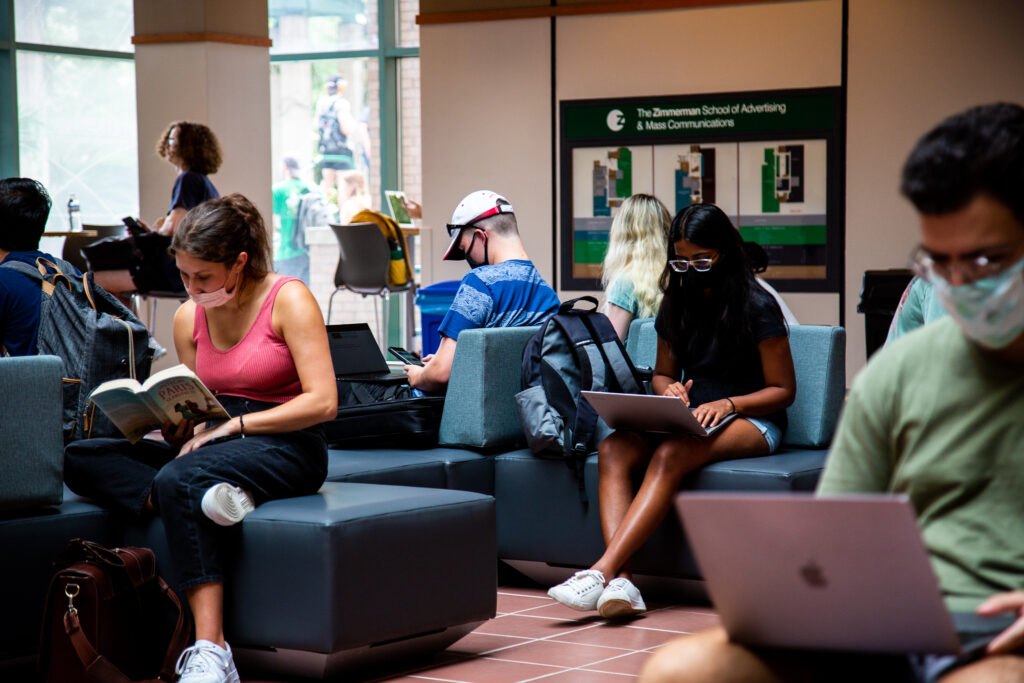OPINION: Give USF professors control over their classrooms

USF is back at full capacity for the fall semester with roughly 50,000 students on all three campuses, according to 2021 enrollment data. This combined with no vaccine or mask mandates has raised concerns among faculty for the safety of themselves and their students in the face of COVID-19.
“As I indicated at the Board of Trustees (BOT) meeting on the 24th, I think faculty generally are quite disappointed at where we are with regard to the plan that we had for reopening,” said USF Faculty Senate President Timothy Boaz in a Sept. 3 interview with The Oracle. “We didn’t stay with the advice of our experts in USF Health.
“Changes were made to the [reopening] plan that aren’t based in science and data, and most of all, the health and welfare of the members of our USF community is no longer the top priority in that plan.”
If USF won’t enforce effective safety measures, it should at least give professors discretion in the level of online instruction on a class-by-class basis.
Other than a strongly worded Aug. 9 announcement that stated mask usage and vaccines are “expected,” it would appear USF’s hands are tied by the state when it comes to mask and vaccine mandates.
The current BOT consists of 13 members, six of whom were appointed by Gov. Ron DeSantis and five of whom were appointed by the Florida Board of Governors (BOG), the bulk of which were also appointed by DeSantis.
Based on DeSantis’ response to mask mandates in Alachua and Broward counties, the repercussions for a disobedient faculty head is clear. When school board officials rejected DeSantis’ ban and implemented mask mandates in public schools, the governor threatened to withhold the salaries of school board members who defied him.
The truth is, all classes are not created equal at USF.
“I think there are circumstances where we should have had more latitude to go online,” said Boaz. “I wouldn’t say all classes need to go online. I’m comfortable with the arrangements I have for my classes. They’re big enough that students can spread out, and the students that I have are complying with the request to wear masks, so I’m comfortable teaching.
“Not every situation is going to be like that. Some students may have family members at risk. There are plenty of classes being taught in classrooms where they’re packed to 100% of capacity. There’s no opportunities for social distancing and I don’t think those are good circumstances.”
In these conditions, faculty members should have discretion on what is best for themselves and the students in their classes, be it to move online, socially distance the classroom or develop a hybrid method.
Students and faculty should address the BOT, whether in person, on social media or around campus, and make it clear the current state of affairs is not acceptable. If USF won’t prioritize the concerns of its faculty, they should have the power to protect their own health.







